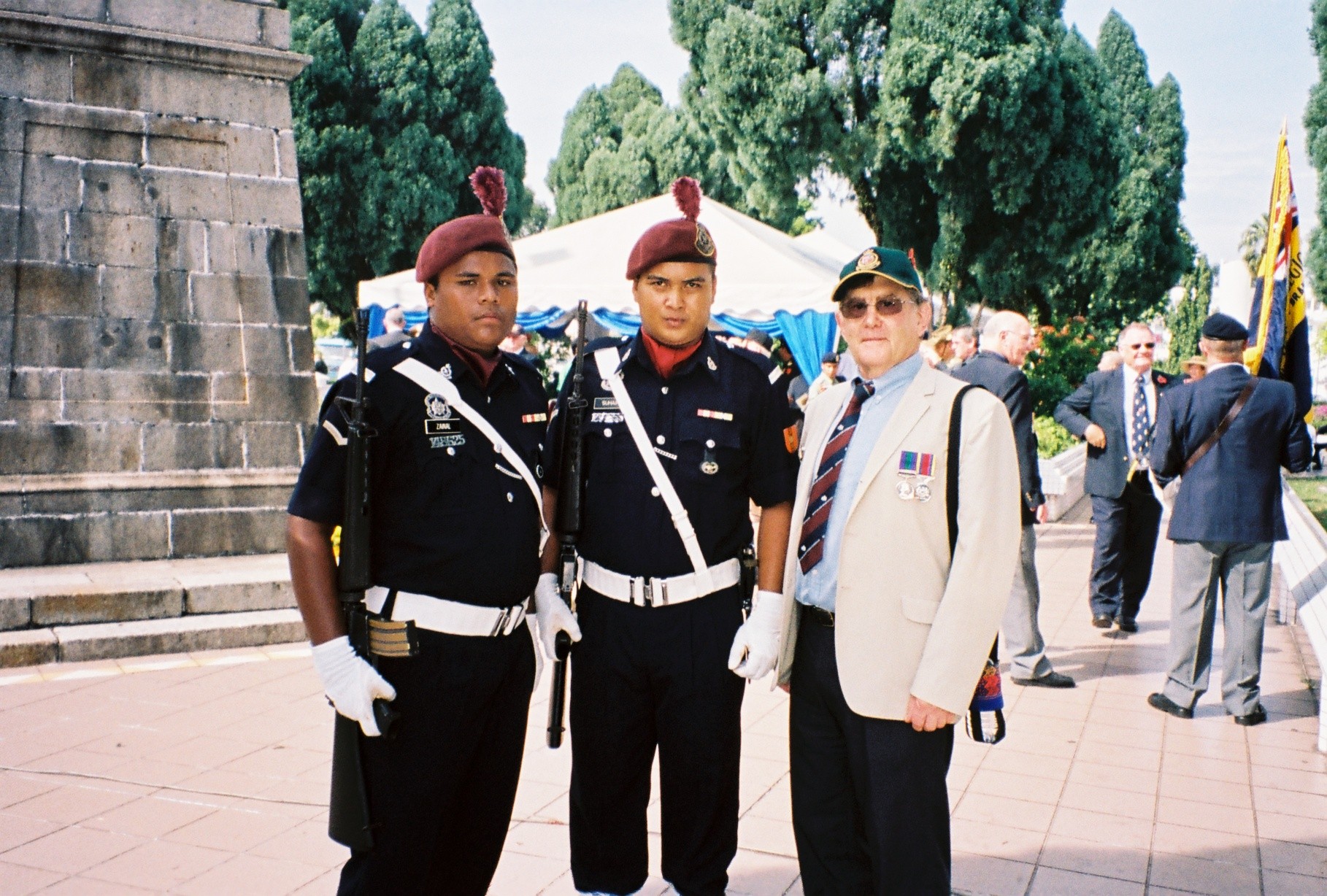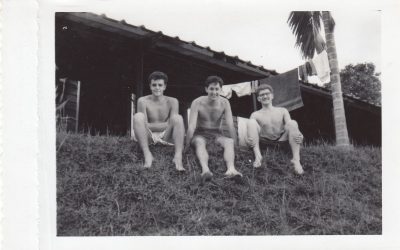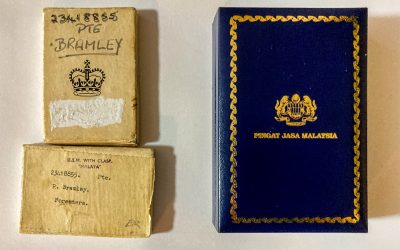Between 1947 and 1960 the British government required all able-bodied eighteen year-old males not in reserved occupations to undergo National Service. This was initially for eighteen months and, latterly, two years’ service in the military. This memoir recounts the experiences of a reluctant conscript serving in a dysfunctional army unit in an undeclared, and now largely forgotten, war known as the ‘Malayan Emergency’.
Due for call-up in early 1958 I could have deferred my service by accepting a place at London University. With National Service expected to end in 1960, I possibly escaped it all together. Instead, my rugby ambitions and the prospect of playing in a Varsity Match at Twickenham led me to accept the offer of a place at St John’s College, Cambridge. The downside of this decision was I was required to complete my National Service before matriculating. Consequently, the Army became my ‘university of life’.
A Malayan National Service memoir about an ordeal to be endured
The military path down which my ultimately unfulfilled Rugby ambitions took me could scarcely be called an adventure. It was more of an ordeal to be endured rather than enjoyed. Consequently, after being demobbed, all I wanted to do was to forget about the Army and get on with my life. Never would I fall into the old nostalgia trap of saying, ‘Ah, yes, National Service – best days of my life!’ Although, eventually (albeit grudgingly) I did concede I did not regret having completed my National Service. The Army taught me a lot, but it was a far from agreeable learning experience. So why would I embark on a military memoir? Especially after having had nothing whatsoever to do with anything military for more than half a century?
How ‘Misadventures with Coco-Oscar’ came to life
Strangely, it was the introduction of the Goods and Services Tax in Australia, where I now live, which was the trigger. When the tax was introduced in 2000, I was living on a graduate research scholarship. This was not adjusted for the impact of the new tax. A chance conversation brought to my attention that, having served alongside Australian troops in the Malayan Emergency, I may be eligible for Veterans’ Health Benefits which would substantially reduce my medical expenses – so I applied.
This was no small undertaking. It was made somewhat easier because I had retained my Service Record and Army Medical History. Plus, I still possessed all the letters I had written home during my time in Malaya. These provided a record of what occurred during my period of service. As it turned out, my application was to no avail. The period of the ‘Emergency’ during which I served was indeed a period of hostilities. It was thus deemed to be ‘qualifying service’ for Australian servicemen. However, for some arcane bureaucratic reason, not for Australian citizens who had served with other Commonwealth forces. This was despite Australian troops and those from other countries being engaged in the same combat areas in pursuit of the same terrorists. This esoteric distinction rendered redundant the further need to prove I had actually ‘incurred danger from hostile forces of the enemy’.
Memory had been far too kind compared to reality
On re-reading my letters, it became clear my memories of the deficiencies of the battalion in which I served were far too kind. The letters revealed the ineptitude of those in command was far worse than I had remembered. It was this re-acquaintance with the minutia of military buffoonery so many years ago which first sowed the seeds of literary ambition – but first I had a PhD to finish!
With the PhD completed (no mean achievement for a man who was described on his Certificate of Discharge as only ‘fairly intelligent but not very industrious’), the next trigger was the death of the last of the original Anzacs. Until then I had considered the Anzac Day Parade to be no concern of mine. It was specifically an Australian and New Zealand commemoration, but by now I was an Australian. So, amid gloomy predictions at the time of the demise of the Anzac Day Parade, I thought I should participate.
Marching for the first time
In 2006 I marched for the first time, with the British ex-Servicemen’s contingent. By the following year, I had discovered the National Malaya and Borneo Veterans’ Association. I had not only marched with them but, after persuading myself I was not morphing into an Antipodean Colonel Blimp, joined the local sub-branch. The comradeship of my fellow veterans proved to be most agreeable. There was little or no reference on our past service in Malaya.
One of the Association’s annual events was the pilgrimage to Ipoh, where I had once been based. Here participants commemorated the murder of the three planters in June 1948. This triggered the Emergency and those servicemen who had lost their lives during the campaign that followed. The year 2010 marked the 50th anniversary of the Cessation of Hostilities. I bribed my wife with a side trip to Laos and joined the pilgrimage.
Remembrance services took place at the Ipoh Cenotaph. First at the Kamunting Road Christian Cemetery in Taiping (which contains the graves of several soldiers whose deaths I recalled). Also, at Batu Gajah (God’s Little Acre Cemetery). Finally, at Syed Putra Camp (the former Gurkha Barracks where I had once been stationed).
A flood of memories brought this Malayan National Service memoir to life
This visit stirred up a flood of memories, bringing to life the incidents described in my letters and was the final spur to embarking on this literary excursion – even though it is scarcely one of heroic martial deeds.
Instead, it is the story of a poorly led and inadequately trained infantry battalion. During its brief period on active operations, found itself in the wrong places at the wrong times to demonstrate any combat capabilities. The only casualties the battalion suffered were self-inflicted. Also, the only hostile bodies it captured were sexually transmitted. The only fighting it engaged in took place in bars and dancehalls. The battalion’s only taste of success in Malaya contributed nothing to ending the ‘Emergency’: it took place on the football field where the battalion won the Far East Army Association Football Cup. This sole triumph was the pinnacle of the battalion’s achievements during its tour of duty in Malaya.
To find out more about ‘Misadventures with Coco-Oscar’ and where to buy, check out About the Book here.



